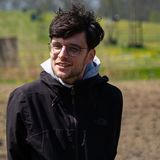The research project and event series ‘From Prevention to Resilience’ explores how public space and civic engagement can contribute to more resilient urban neighbourhoods. Throughout the project a nature-inclusive design framework has been developed, which challenges and enables urban designers to not only consider ‘human’ residents within their scope but also ‘non-human’ residents. In the third and final event of the series, experience design lab ‘UNSx’ and social design agency ‘The Beach’ share their experiences with integrating these two perspectives to promote neighbourhood resilience. What value was created by integrating these different perspectives? Which obstacles and challenges emerged while doing so? And what lessons were learned that can inform future design practices for more resilient neighbourhoods?
This project is made possible by: ZonMw grant round ‘COVID 19 Societal Dynamics’.
About the program
For this third and final session of the From Prevention to Resilience series, we start with an introduction on the project and framework by:
- Giulia Gualtieri is junior researcher in the research group Civic Interaction Design. Involved in the project ‘From Prevention to Resilience: Designing Public Spaces in Times of Pandemics’. She will elaborate on the objectives and the outcomes of this research project.
We then hear from the two design studio’s that worked with the developed nature-inclusive design framework:
- Social design agency The Beach in Osdorp (Amsterdam) used the Design Framework for Neighborhood Resilience in the ‘Voor Jou, Voor Mij’ program. During this program, local women are invited to participate in ateliers, in which they gain hands-on experience and develop new skills (such as cooking, weaving, constructing wooden furniture, creating beauty products and gardening). The aim is to enable participating women to learn, grow, and connect as a group, to make them aware of their capabilities, and to take ownership of their activities and products and turn these into a small business. Assistant programmaker at The Beach, Emiel Wolf, will share their experiences with implementing the framework.
- UNStudio’s experience design team, UNSx, implemented the Design Framework for Neighbourhood Resilience at the Rode Kruislaan social housing complex of housing corporation Rochdale. Being an area that faces many social and spatial challenges, UNSx followed a three-phase design process and invited professionals with diverse expertise to contribute at different stages. By using three ‘impact goals’ throughout the process, UNSx developed a concept design that invites further inquiry and experimentation towards a more resilient Rode Kruislaan. The Head of Innovation and Knowledge Management Education at UNSx, Filippo Lodi and his team will share their experiences with implementing the framework.
Finally, Indira van ’t Klooster (Arcam) will join Boudewijn Boon (AUAS), Filippo Lodi (UNSx), and Hannah Oul-Hadj for a broader discussion of the potential of integrating the human & non-human in design thinking.














